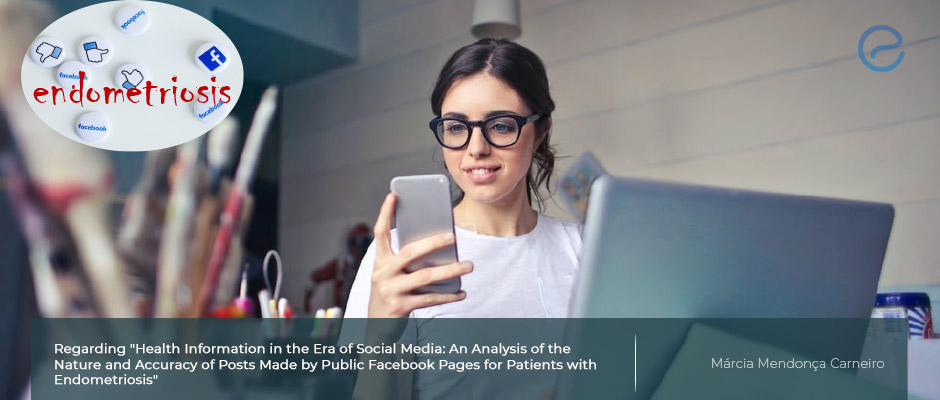Is the information on Facebook groups about endometriosis accurate?
Jul 16, 2021
A couple of studies discuss the use of Facebook group pages about endometriosis regarding their scientific and other contents
Key Points
Highlight
- Social media platforms particularly the ones about endometriosis may be used in educating the public.
- Clinicians may take a role in educating the public via social media which would help patients even more.
Importance
- A lot of people engage in group posts and seek and provide emotional support online.
- There is no control of the content being shared online, which might cause problems when the information is not accurate.
Key results
- Studies on this issue suggest that the accuracy rates of scientific posts shared on Facebook groups are high.
- Efforts should be given to evaluate the contents of the posts and provide good quality information.
What’s done here?
- This is a letter to the editor about a previous article that assessed the use of Facebook groups and the accuracy of the shared scientific content.
Lay Summary
The use of social media platforms has been increasing day by day. The coronavirus pandemic has attributed to this immensely. Facebook pages and groups are among the most commonly used platforms to share knowledge, seek emotional support, and learn. While there is no control of the posts whatsoever, scientists have been investigating the posted content’s accuracy on many levels.
As endometriosis is a chronic disease that affects millions of women worldwide, it’s natural that there are a lot of support groups on several social media platforms. In the study made by Towne et al. from the University of California, USA, all the Facebook pages were searched using the keyword “endometriosis” and its’ content was categorized and analyzed. This study was published in the Journal of Minimally Invasive Gynecology.
They included 53 Facebook group pages and evaluated 1464 posts from these groups. The posts were categorized depending on the subject. The engagement rates on the posts were also detected using the sum of comments, shares, and reactions. The most common subject to be written about was “emotional support” followed by educational posts. The educational posts contained information about epidemiology and pathophysiology followed by symptoms. Most of the engagement was done on posts containing emotional content. The rate of the accuracy of the educational posts was found to be 93%. The authors concluded that Facebook pages are helpful in providing emotional support and education to women who suffer from endometriosis and clinicians should also consider using these groups.
In response to this article, Dr. Carneiro from Brazil has written a letter to the editor stating their thoughts on the article by Towne et al.
She states that the coronavirus pandemic has resulted in an “infodemic” online with the sharing of too much content and it may have resulted in a state of panic when it contained non-accurate information. Dr. Carneiro then goes on to say that there are not many published articles about the Facebook pages on endometriosis and emphasizes their previous study on this topic. She states that the study by Towne et al. was performed on March 2021 which was “Endometriosis Awareness Month” and the number of posts and the engagement rates were most likely increased during this time. She argues that the performed content analysis did not separate the people who wrote the posts into people with a scientific background and others and it would be interesting to see the accuracy rates according to these groups.
The author concludes that social media platforms take a big role in educating people and promoting public health. New research is needed to combat the “infodemic” that has been increasing and effort should be given to provide quality and well-documented information.
Research Source: https://pubmed.ncbi.nlm.nih.gov/33933659/
social media endometriosis facebook groups content

